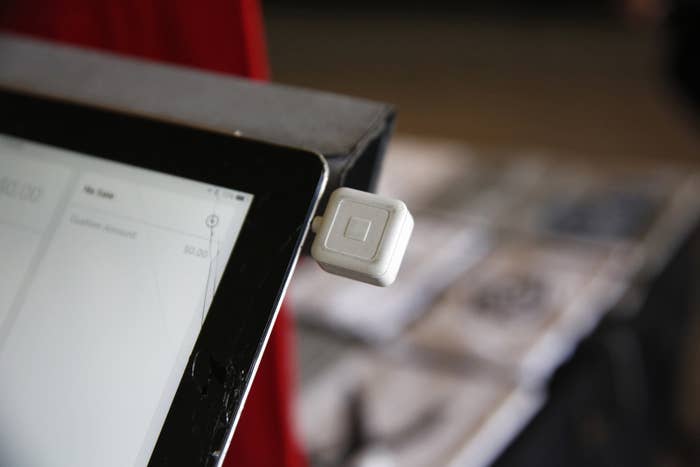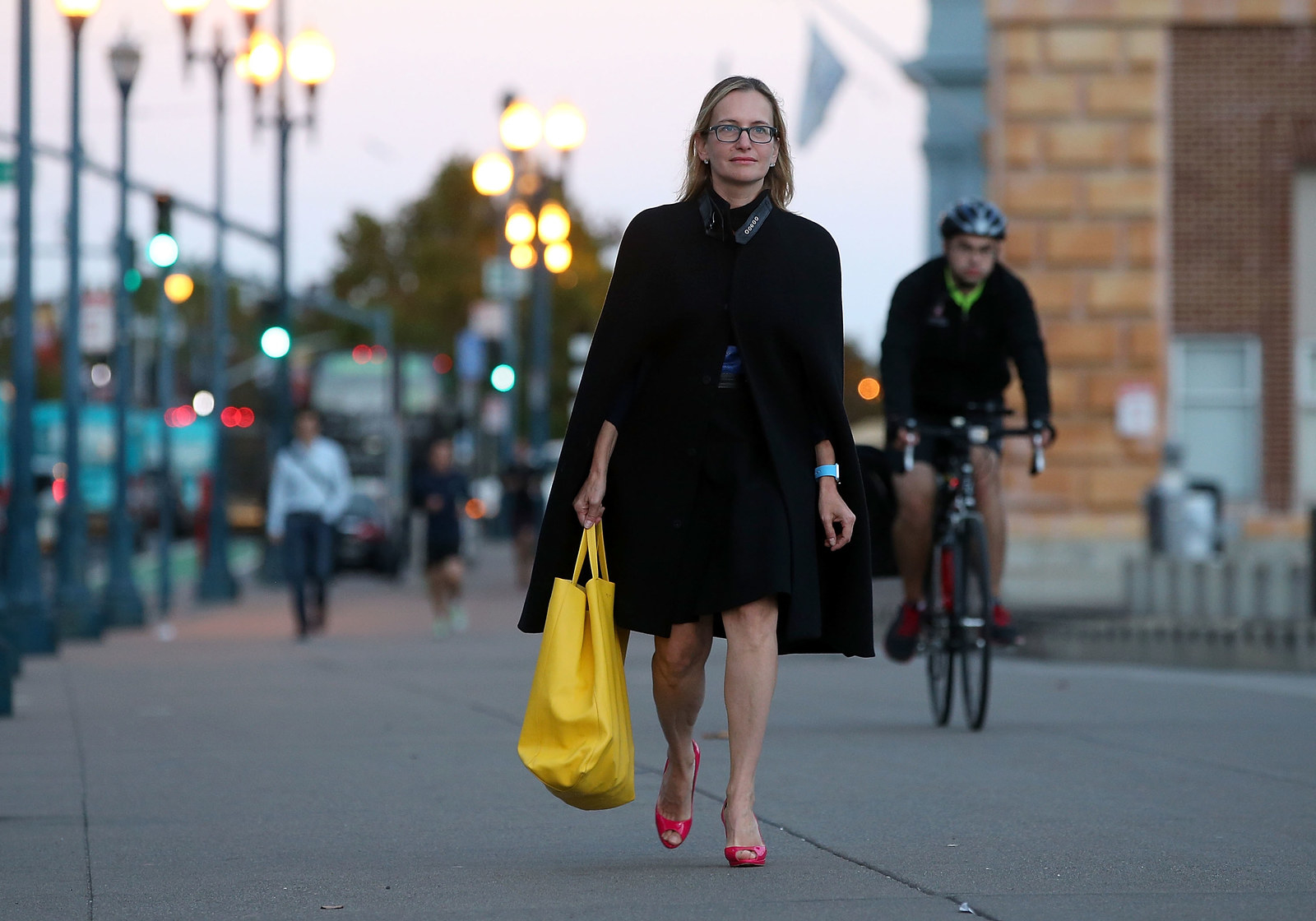Square Deal

If you've shopped at a farmers market, gotten your hair cut at a small salon, or taken a golf lesson with an independent pro, chances are you've made a payment through Square, the credit card processing company founded by Jack Dorsey, who also helped start Twitter.
Small businesses love Square because it charges them less than the bigger, bank-owned payment processors, and the little white card-swipes that plug into a smartphone are easier and more convenient than handheld credit card terminals. Square also — through a partnership with a tiny bank in Utah — makes loans to small companies and entrepreneurs banks would turn away.
And this is where things get dicey: As much as small merchants love Square, smaller banks distrust it, particularly now that the company, which is based in San Francisco, has applied to become an industrial loan company (ILC), a controversial type of banking license offered in Utah and a few other states.
Square clearly has big ambitions: Jacqueline D. Reses, the head of Square Capital — its nascent business financing arm — told BuzzFeed News that the company "is uniquely positioned to build a bridge between the financial system and the underserved," specifically in lending and providing software to small businesses.
"We would pursue business lending, and then we would look at deposits and what other banking services we could provide to our sellers," said Reses, who was previously Yahoo's chief development officer and a director at Alibaba Group.

Square poaches Yahoo exec Jaqueline Reses to head up biz financing unit, Square Capital: http://t.co/WjH72IQiDK
For now, since Square doesn't have the license it needs to take deposits or make loans, it is only offering loans to its merchants through Celtic Bank, a small-business bank in Utah that is regulated by the FDIC.
Square is one of three fintech companies that have recently applied for bank charters, and one of two to apply for an ILC. Varo Money, a 1-year-old startup that offers mobile-only banking through an iPhone app, applied for a national bank charter, while Social Finance Inc. — better known as SoFi — which offers student loan refinancing as well as mortgages and personal loans, applied to become an ILC.

And while Square insists it only wants to make small loans to the merchants it serves, banks see this as a backdoor way into their bread-and-butter business of taking deposits and making loans, both to businesses and consumers.
Opposition to ILC applications is one issue that unites bankers with consumer advocacy and reinvestment groups, which tend to be on opposite sides of financial regulatory issues. The ILC charter gives companies most of the privileges of being a bank — the ability to take deposits and make loans — but with much less regulation and with the ability to run commercial businesses on the side, which mainstream banks can't do. (Square, for instance, sells its payment processing system and business software, and even operates a food delivery service.)
Becoming an ILC is "a loophole that is now being exploited," Chris Cole, the executive vice president of the Independent Community Bankers of America, a bank trade group, told BuzzFeed News.
"The owners of these banks can engage in commercial activity if they want, whereas a traditional bank owner, subject to the Bank Holding Act, can only engage in activities that are closely related to banking," he added.
How Square Works
View this video on YouTube
Indeed, days after Square submitted its ILC application this month, the Independent Community Bankers of America called on the FDIC to put in place a two-year moratorium on ILCs getting deposit insurance.
The ICBA worries that allowing technology companies like SoFi (which recently lost its CEO to a sexual harassment scandal) into the banking system through an ILC would encourage massive companies with a more tenuous relationship with banking to own banks — like Amazon, Alphabet, or Walmart.
The group opposes both Square and SoFi's applications, and its head, Camden Fine, made the conflict with SoFi more personal, tweeting: "SoFi turmoil another reason FDIC shld deny app! Extending deposit safety net to non-bk activities dangerous & not what congress intended!"
.@ICBA's @Cam_Fine in @AmerBanker: FDIC should deny SoFi application, impose 2-year moratorium on future ILC apps https://t.co/xIon23kYCt
Banks have been here before: In 2006, efforts by Walmart and Home Depot to get deposit insurance — and potentially turn all their shoppers into their banking customers — prompted bankers to lobby successfully for a moratorium on the issuance of ILCs by the FDIC. Walmart thought a bank would let it more more effectively process payments, while Home Depot wanted to make loans to finance home improvements.
Then, in 2010, the Dodd-Frank Act put in place another three-year pause for ILCs getting deposit insurance that ran out in 2013.
And Square, with its at least 2 million merchant customers, may look to today's bankers a lot like Walmart did a decade ago. The company has been aggressively soliciting the merchants who use it as a payment processor, offering them small-dollar loans by email.
Take Courtney Foster, who runs a one-chair salon in the Murray Hill neighborhood of Manhattan and has used Square to accept payments for years. One day she got an email from Square Capital with an offer of a loan of $1,000 to $1,500, which would be paid back directly out of her payments processed through Square.
She has since borrowed about $3,000 in total from Square using the money (supplied by Celtic Bank) to start her own line of hair products.
Foster had been a Square customer for years before opening her own salon, using its phone dongle to accept payments from private clients. So getting a loan from the company seemed like a logical next step, particularly after her experience with a loan officer at a large bank, who "just laughed me out," she told BuzzFeed News.
But Square approved her loan in a few hours — and all online. "I sat on the bed and tears came out of my eyes," Foster told BuzzFeed News.
It's finally here! My @square story! Thank You @square for including me in this amazing Square… https://t.co/raVyH6nC6M
Because of its deep financial relationships with its merchants, Square is already under heavy regulatory scrutiny in the states in which it operates, Reses said. Square "has gone through the process on behalf to be almost fully compliant with FDIC guidelines," she added. "At the point where you’re at our scale, we’d rather be directly regulated by the FDIC."
Reses would be the chair of the new bank, which would be run by Lewis Goodwin, a former executive at Green Dot, the giant seller of prepaid debit cards.
The average loan approved by Square is about $6,000, and the company has either advanced or loaned almost $2 billion since 2014. The amount due back is typically 10% to 16% more than the amount loaned out — which is on the low end for similar types of small business finance — with payments coming out of a fixed percentage of the merchant's receipts received through Square. The whole balance is due after 18 months, though Square customers can repay early.
Square sees itself as stepping in to provide loans to small but growing businesses that typically don't have the earnings track record to hear from a bank. "We serve businesses that are otherwise underserved," Reses said. More than half the loans go to women, while about a third go to minority borrowers, she added.
Introduction to Square Capital
View this video on YouTube
If Square — or SoFi — is approved for an ILC, it will be able to operate nationally as a bank, overseen by federal regulators with the ability to apply for deposit insurance from the Federal Deposit Insurance Corporation.
SoFi, which primarily offers loans, wants the Utah banking license because it "would allow us as a nonbank parent to have a captive bank subsidiary, though which we can offer our members deposit accounts," Jim Prosser, a SoFi spokesman, told BuzzFeed News.
While technology companies offering financial services is nothing new — PayPal is a $71 billion public company — they have shied away from becoming full-fledged banks.
While many of the largest tech companies, like Facebook, Alphabet, and Apple — have dipped their toes into providing financial services like payments, it's only been more finance-focused upstarts that have pushed to become banks.
Typically, the well-known companies that try to become ILCs are either non-financial companies that want to offer financial services to their customers — Walmart, Ford, Chrysler, and Home Depot have all applied for ILC status — or financial companies that want to have some traditional banking operations, like Goldman Sachs, which had a Utah ILC banking operation until it was converted into a bank holding company during the financial crisis.
Utah has 16 industrial banks, and most fall into the latter category, while some are retailers that issue their own loans, like BMW. Other companies that operate Utah industrial banks include American Express, USAA, UBS, and Sallie Mae.
But lately there's been an explosion in new nonbank companies, many funded by technology investors that mostly operate online. OnDeck and Square Capital, which both lend to businesses, use Celtic Bank, while Lending Club, which mostly originates personal loans, works with the Utah-chartered Web Bank.
Most customers do not notice. The technology companies handle the underwriting and customer relationship.
"What many people don’t realize is that some of the most innovative products they work with every day on their smartphones or computers all involve banks in the background," said Stephen A. Aschettino, a lawyer and partner at Loeb & Loeb. "That brings complexity and slows down transactions, if those providers can provide them directly and not utilize banks, it opens up innovations and arguably saves transaction costs."
For a company like Square that provides lots of services that are financial, but not strictly related to banking, becoming a national bank would require a wholesale reorientation and reorganization of its business, including having the entire parent company overseen by the Federal Reserve, as opposed to the bank itself being overseen by the FDIC.
"A lot of parent companies do not want to regulated or supervised by the federal reserve," Jim Barth, an Auburn University professor and fellow at the Milken Institute, told BuzzFeed News.
For Square, the variety of other businesses it operates makes getting a national bank charter almost impossible. "All of those businesses would not be relevant and fit within a regime of a bank holding company," Reses said.
There is also the issue of the Community Reinvestment Act, which requires banks to meet the credit needs of all the consumers in the places where it does business —particularly low- and moderate-income consumers. John Taylor, president of the National Community Reinvestment Coalition, worries that ILCs can get banking charters without the same obligations to make credit widely available — and this position has made him a strange bedfellow of banking lobbies.
The ILC applicants "want to have access to the resources banks have," said Taylor. And to him — and some banks — this raises concerns "about safety and soundness and lack of regulatory oversight that could create malfeasance."
Another fintech company, Varo, is taking a different approach: To meet its goal of becoming a mainstream mobile-only deposit-taking bank, it wants to become a full-on national bank overseen by the Office of the Comptroller of the Currency and the Federal Reserve. Varo applied in July for both its charter from the OCC and deposit insurance from the FDIC.
"We founded the company with the idea that we would someday become a national bank," Colin Walsh, Varo's CEO, told BuzzFeed News.



